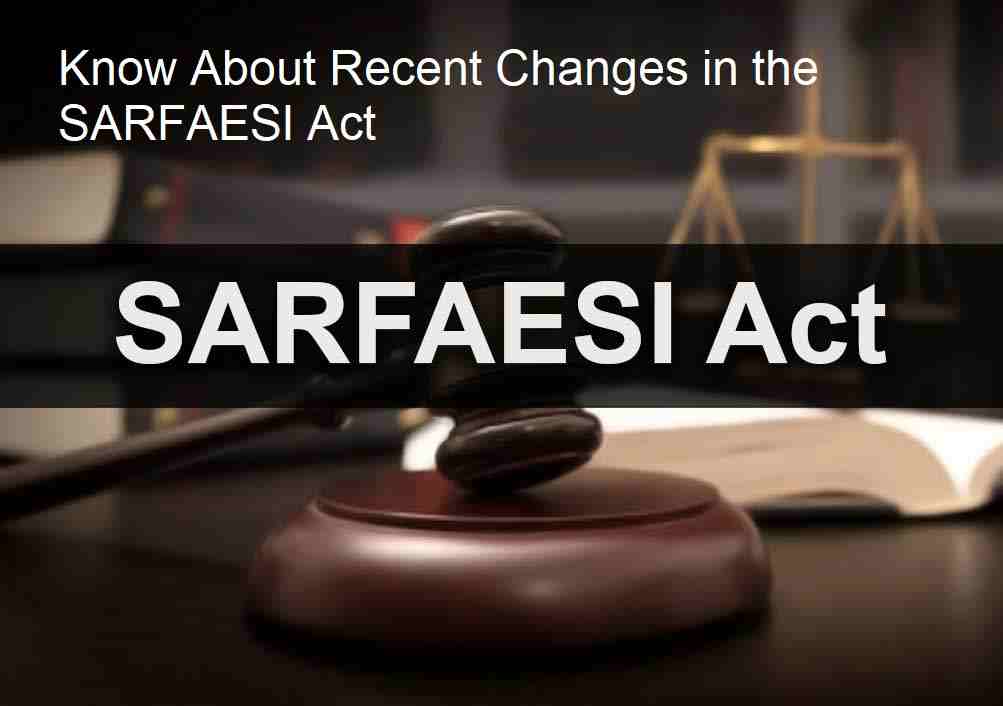The Securitisation and Reconstruction of Financial Assets and Enforcement of Security Interest (SARFAESI) Act, 2002 is a powerful tool that empowers banks and financial institutions to recover their dues from defaulting borrowers. One of the important provisions of the SARFAESI Act is the sale of secured assets through a public auction. Once the auction is conducted, and the sale certificate is issued to the highest bidder, the ownership of the asset is transferred to the buyer. However, in certain cases, the sale certificate can be cancelled. In this article, we will discuss the cancellation of sale certificate under SARFAESI Act.
What is a Sale Certificate?
Before we delve into the cancellation of a sale certificate, let's understand what it means. A sale certificate is a legal document issued by the authorised officer of the bank or financial institution after the sale of a secured asset through a public auction. The sale certificate certifies that the sale has been conducted in accordance with the provisions of the SARFAESI Act and that the ownership of the asset has been transferred to the highest bidder.
Grounds for Cancellation of Sale Certificate
The cancellation of a sale certificate is a rare occurrence and can happen only under certain circumstances. The following are the grounds on which a sale certificate can be cancelled:
-
Non-fulfilment of terms and conditions: If the highest bidder fails to fulfil the terms and conditions of the auction as mentioned in the sale notice, the sale certificate can be cancelled. For example, if the highest bidder fails to make the payment within the stipulated time, the sale certificate can be cancelled.
-
Non-compliance with legal requirements: If the sale is not conducted in accordance with the provisions of the SARFAESI Act, the sale certificate can be cancelled. For example, if the public notice inviting bids is not published in the prescribed manner, the sale certificate can be cancelled.
-
Fraud or collusion: If there is evidence of fraud or collusion between the borrower and the highest bidder, the sale certificate can be cancelled. For example, if the borrower and the highest bidder are related, and the bid is not made in good faith, the sale certificate can be cancelled.
-
Any other reason: The authorised officer can cancel the sale certificate for any other reason if he deems fit. However, the reasons for cancellation must be recorded in writing.
Procedure for Cancellation of Sale Certificate
If the authorised officer decides to cancel the sale certificate, he must follow the following procedure:
-
The authorised officer must record the reasons for cancellation in writing.
-
The borrower and the highest bidder must be informed of the decision to cancel the sale certificate.
-
The borrower must be given an opportunity to rectify the default or non-compliance, if possible.
-
If the default or non-compliance is not rectified within the stipulated time, the authorised officer can cancel the sale certificate.
-
The cancellation of the sale certificate must be recorded in writing, and a copy of the same must be provided to the borrower and the highest bidder.
Conclusion
The cancellation of a sale certificate under SARFAESI Act is a rare occurrence and can happen only under specific circumstances. It is essential to follow the proper procedure while cancelling the sale certificate. As a borrower, it is essential to comply with the terms and conditions of the auction and ensure that the sale is conducted in accordance with the provisions of the SARFAESI Act. As a buyer, it is essential to bid in good faith and ensure that there is no fraud or collusion involved. By following the rules and regulations, we can ensure a smooth and transparent recovery process for banks and financial institutions.






